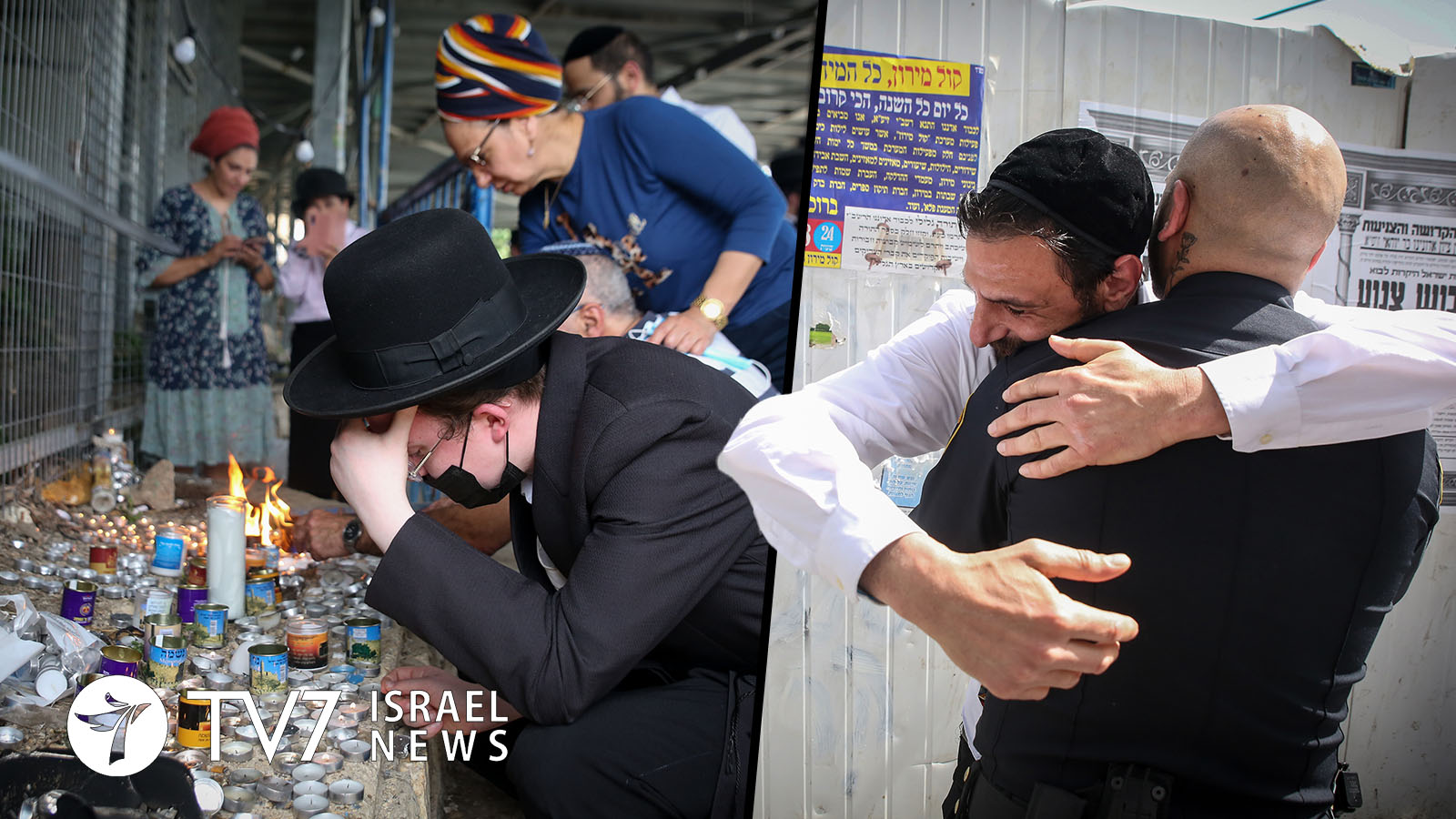The tragedy at the Lag B’Omer festival in Israel is to be officially investigated by the State Comptroller’s Office. 45 people were crushed to death when they fell on one another during the Jewish religious event overnight Thursday and Friday last week.
“I wish to announce today that I intend to open a special audit that will investigate the circumstances that led to this tragedy,” State Comptroller Matanyahu Englman told reporters, adding his probe would examine the actions of all groups leading up to and during the festival – “from the level of decision-makers to those in the field, including law enforcement.”
The State Comptroller of Israel is an independent authority that answers to the Knesset alone, empowered to supervise and review all government policies and operations. While he can investigate and issue public findings of official wrongdoing, he is however unable to file criminal indictment. In fact, two separate Comptroller reports in 2008 and 2011 deemed the site of the Lag B’Omer festival at Mount Meron in the Galilee region as hazardous and inadequate for mass attendance, supported by a police warning in 2016.
Government attempts to expropriate the tomb complex from private ownership failed in a High Court decision last year, although the site is managed by the Ministry of Religious Services.
There have been many calls for the government to form a higher-level committee with greater authority to find assign responsibility for the incident.
A national day of mourning was observed on Sunday for the victims, who include several children, 6 United States citizens, 2 Canadians, a British national and an Argentinian.
They were among a crowd of some 100,000 ultra-Orthodox Jews who came to the tomb of 2nd-century sage Rabbi Shimon Bar Yochai for the annual holding of all-night prayer, mystical songs, bonfires and dance. The deaths occurred after some celebrants slipped on stairs along a narrow exit route, causing others to fall and scores of others to be asphyxiated or trampled.
Allegations have been raised as to whether the government and police were reluctant to limit the crowd size at the site so as not to anger influential ultra-Orthodox rabbis and politicians.
Prime Minister Benjamin Netanyahu, who’s Likud party is a natural ally of the ultra-Orthodox, vowed that a thorough investigation into what was one of Israel’s worst civilian disasters, although was circumspect on what form it would take or who would oversee it.
At a special Knesset memorial session honoring the casualties, Netanyahu said: “We will examine in an orderly, deep and responsible manner all of the issues related to assemblies on the mountain, in the present and the past.”
He said entry and exit procedures, police deployment and “above all the structural changes necessary at the site” would be assessed.
Defense and Justice Minister Benny Gantz told lawmakers “a great debt of gratitude” is owed to the many soldiers, medical response teams, civil organizations, police officers and citizens who came together to extend their hands in assistance, just as they have “in other instances of national emergency” to save lives.
“We must mobilize our solidarity to address the problems. We have the power to save lives. That is the meaning of responsibility; that is the meaning of leadership,” Gantz added, underscoring that, “The role of an investigation isn’t just to assign blame, it is to realize our responsibility to the victims… It is our responsibility to turn this national tragedy from a breaking point into a turning point.”
Interior Minister and leader of the ultra-Orthodox Shas (a Hebrew acronym for “Sephardic Guardians of the Torah”) party Aryeh Deri has faced fierce criticism for blocking a proposal by the Health Ministry, police and other bodies that would have limited attendance at Mount Meron to 9,000 participants with proof of coronavirus vaccination or negative test results.
According to statements from the head of the National Center for the Development of Holy Places Yosef Schwinger, Deri “fought like a lion” against the restrictions during a cabinet meeting just hours before the incident.
Deri insisted from the Knesset plenum that, “All of my activities and those of the religious and ultra-Orthodox public representatives were so that coronavirus restrictions – and only coronavirus restrictions – would not apply outdoors,” claiming that participation at the Lag B’Omer festival was “just like the masses in Israel who celebrated Independence Day about a week ago on beaches and parks under the sky.”
“The disaster is a decree from above, but that does not absolve us from examining and investigating” what the Shas leader went on to say were “foundational problems” at the “entire complex and the construction of adequate infrastructure, as is appropriate for a holy site such as Rabbi Shimon Bar Yochai’s grave.”
